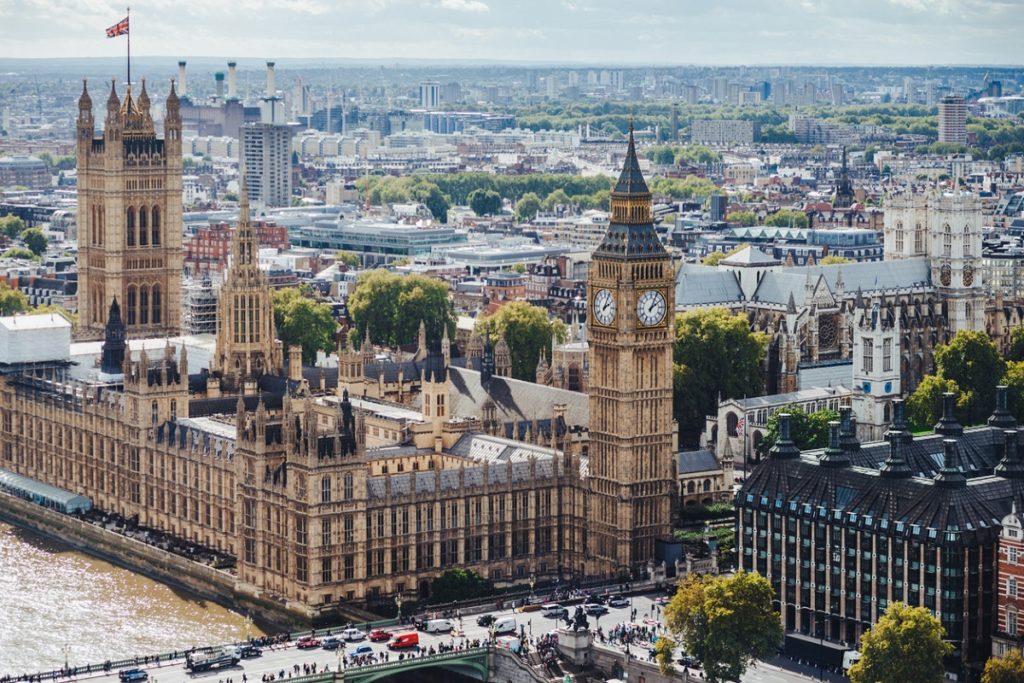Boris Johnson’s government is intent on consolidating executive power and rewiring the electoral playing field.
A fight with constitutional reformists seems to be high on the government’s agenda; it is already moving to replace the more representative supplementary vote with first-past-the-post for mayoral elections.
The latest example of the government’s fight back is the dissolution and calling of parliament bill, which will end fixed-term parliaments and likely hand the power to set election dates back to the prime minister of the day. This is an internationally unusual practice, and only a very small number of countries (Japan, Israel and Denmark being the most notable) provide such an advantage to their governing party.
Rather than being repealed, the Fixed Term Parliament Act needs an upgrade.


The Fixed-term Parliaments Act is a positive but imperfect piece of legislation. Even though it arguably only came about to sustain the Conservative-Lib Dem coalition, it placed a much-needed check on the executive by ending the prime minister’s ability to call an election at a time of their choosing.
With or without fixed terms, the UK adheres to the democratic principle of regular elections. However, the rules of democracy should be as fair as possible. With fixed election dates, notwithstanding exceptional circumstances that can trigger early elections, all parties know when the next election will be held.
Returning the power to call elections to the prime minister distorts the playing field by handing an inherent advantage to the government of the day. This does not in itself guarantee victory, as Harold Wilson’s failed gamble in 1970 testifies, but there is a clear advantage of being able to call an election in line with one’s best judgement.
The dissolution and calling of parliament bill has now passed its second reading in the House of Commons. The Liberal Democrats, the SNP and others opposed the bill while Labour abstained. It will now almost certainly become law and bring an end to fixed term parliaments, which is bad news for representative democracy.
British political debate is often conducted in a silo, but the UK should learn from democratic best practice across the globe where fixed-term parliaments are most often taken for granted.
Democracy requires a fine balance between regular input from the electorate while providing time to govern effectively. Fixed terms ensure a level playing field. One way to improve the Act, instead of repealing it altogether, would be to switch from five-year to four-year fixed terms.
Whether fixed or not, five-year terms are longer than necessary.
More frequent elections can inject new ideas and fresh minds into stale parliaments and ensure that voters have a regular say. There is no right answer for how long parliamentary terms should be, but four-year terms would strike a sensible balance between the perpetual campaign mindsets required with two or three-year terms (used in the US and New Zealand respectively) and five-year terms where parliaments drag on without new input and updated mandates.
The merit of four-year terms has been recognised in the past. This was the approach taken by the Labour government when legislating for devolution and directly elected mayors, and the Conservatives when legislating for Police and Crime Commissioners. Shifting to four-year terms would bring Westminster into line with the UK’s other levels of governance.
British parliamentary terms are typically shorter than five years – with the full five-year option largely only used to sustain dying governments such as John Major’s up to 1997 and Gordon Brown’s up to 2010. Labour MP Chris Bryant made this point in the bill’s second reading, highlighting that fixed four-year terms would formalise a largely normalised pattern.
Furthermore, the House of Commons is also an outlier in Europe. Most European countries have four-year terms for their own parliaments. Having general elections guaranteed only twice a decade weakens the link between voters and their representatives.
Critics of course claim that the Fixed-term Parliaments Act causes problems like those seen during the Brexit gridlock of 2019. However, this was a unique situation and one where the situation – notably that surrounding the two-week period following a vote of vote of no confidence – could be tidied up. In the face of these challenges, removing the Fixed-term Parliaments Act altogether is a colossal overreaction.
The repeal of the Fixed-term Parliaments Act is an overt attempt to strengthen the government’s position and unfairly disadvantage the opposition. The chances of stopping it and upgrading our democratic system are slim but the arguments for reform must still be championed.
Scotland can learn from this as well. The Scottish p arliament recently made five-year terms permanent to avoid conflicts with UK elections. However going back to four-year terms would improve democratic accountability in Scotland too.
If the day ever comes, cutting fixed-term parliaments to four years must be looked at in parallel with replacing the House of Lords, where all its ordinary members are guaranteed positions for life. Again these unlimited term lengths must be addressed as all democratic mandates must eventually expire.
The British public do not directly vote for the government – they vote for a parliament from within which an executive exists by commanding a majority. Checks on executive power, such as frequent, fixed election dates with level playing fields, are therefore essential to ensuring accountable and legitimate governance.
Ending fixed-term parliaments will unjustly strengthen the executive and further distort British democracy’s already uneven playing field.The repeal of fixed elections is likely to become law, but the case must be made for an alternative that improves the Fixed-term Parliaments Act and ultimately levels up our democracy.
Keeping fixed election dates and formalising four-year terms would do just that.

